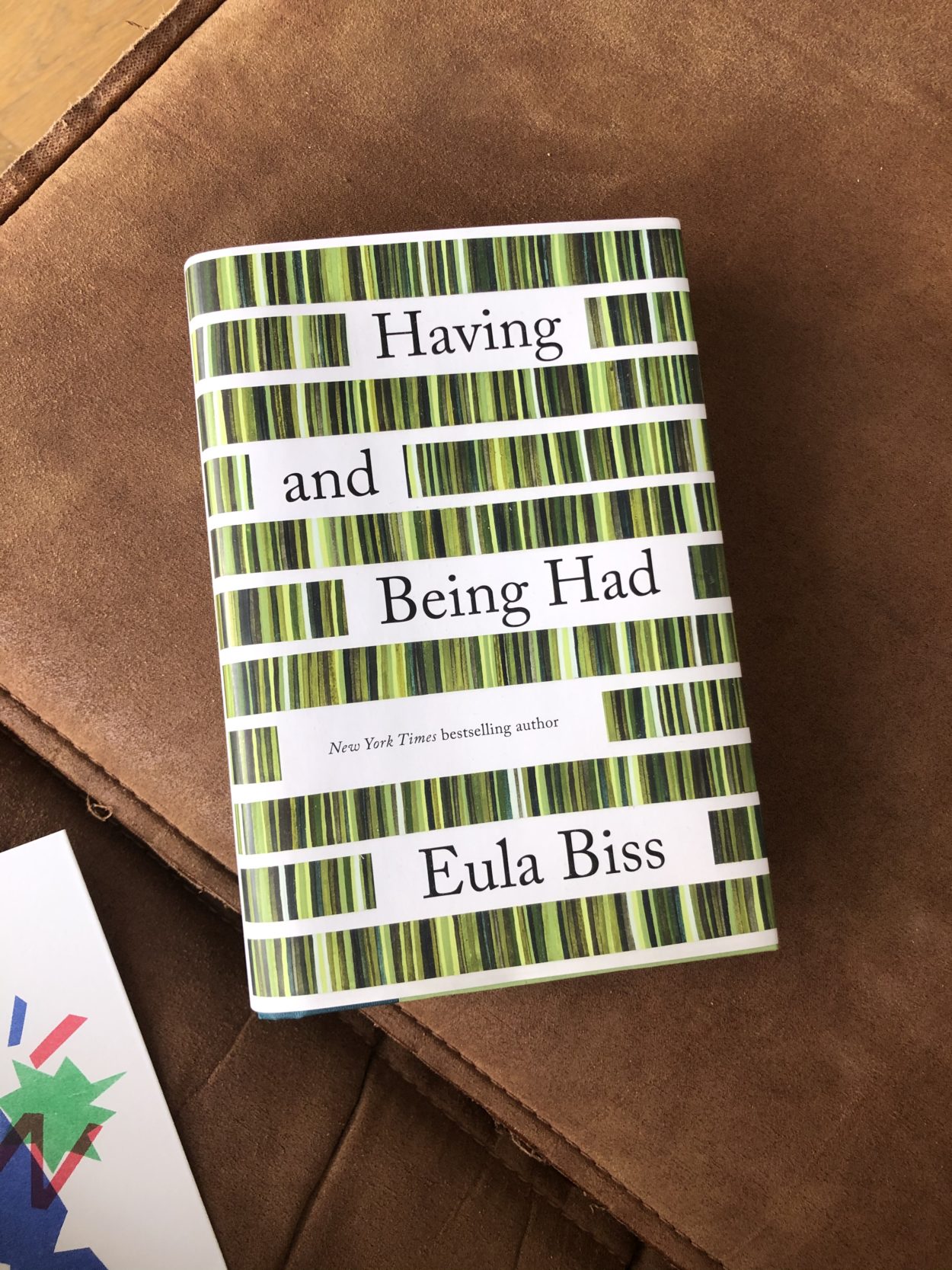Published
Having and Being Had

Having and Being Had is a fantastic book to read in your 30s, being both topical and refreshingly honest. Characteristically, Eula Biss rigourously weaves personal narrative with secondary research, in short chapters that make for an easy read, as she grapples with the purchase of her first home. An exemplary chapter below:
Moral Monday
Today is Moral Monday, I hear on the radio. A priest and a rabbi are staging a protest downtown with a giant camel and a giant needle, a reference to Jesus saying, “It is easier for a camel to go through the eye of a needle than for someone who is rich to enter the kingdom of God.” I pause over this, wondering if money can really be so corrupting that just having it is immoral. I have my doubts, but I also have money.
Now I’m pulling weeds in the garden of the elementary school, wondering if I’m on my way to becoming an asshole. I’ve been reading the psychologist Paul Piff, who quotes Jesus in a paper titled “Higher Social Class predicts Increased Unethical Behaviour”. Piff and his team of researchers found that the rich are more likely than the poor to cut off other vehicles when driving through intersections. And they’re less likely to stop for pedestrians. They’re more likely to cheat in a game, and more likely to think of greed as good. But money is not to blame for this, Piff suggests. What’s to blame is the comfort that higher class status affords – the independence, the insularity, the security, the illusion of not needing other people. “While having money doesn’t necessarily make anybody anything,” Piff told New York magazine, “the rich are way more likely to prioritise their own self-interests above the interests of other people. It makes them more likely to exhibit characteristics that we would stereotypically associate with, say, assholes.”
There’s a weed in this garden that’s like kudzu. It’s called bindweed or, less commonly, possession vine. It winds around other plants, blocking their sunlight. It’s strangling the raspberries and creeping toward the arugula. It grows new roots everywhere it touches the ground and each fragment of root that I don’t pull becomes another vine. It seems to have an unfair advantage over the other plants. Susie sees me working and stops to help. Did I read the article in the Times yesterday, she asks, about the rich?
I did. It was written by a sociologist, Rachel Sherman, who interviewed wealthy New Yorkers, people in the top 1 and 2 percent. The very rich, her study revealed, are uncomfortable with being rich. If they are assholes, they are uneasy assholes. They try to hide their spending from their nannies, cutting the tags off new clothes and peeling the labels off expensive bread. They don’t boast about their wealth, but about their thrift. They talk about looking for deals and driving old cars.
Have I told you, Susie jokes, that I drive a really old car?
It’s unsettling, I agree, how similar the very rich are to us. They, too, don’t admit to being rich – they are ‘comfortable.’ Like us, they budget and save and give. They tell themselves that they’ve worked hard. But they’re ambivalent about their money and what they’ve bought with it. The $4 million condo seems excessive even to the people who live there. The expense is a measure of the distance between them and other people. The rich feel morally compromised, so they try to be good.
Dividing the good rich from the bad rich is a waste of time, Sherman suggests, for the rich and everyone else. “Judging wealthy people on the basis of their individual behaviours – do they work hard enough, do they consume reasonably enough, do they give back enough – distracts us from other kinds of questions about the morality of vastly unequal distributions of wealth,” she writes. We shouldn’t ask our rich to be good, in other words, we should ask our economic system to be better.
pg 45-47